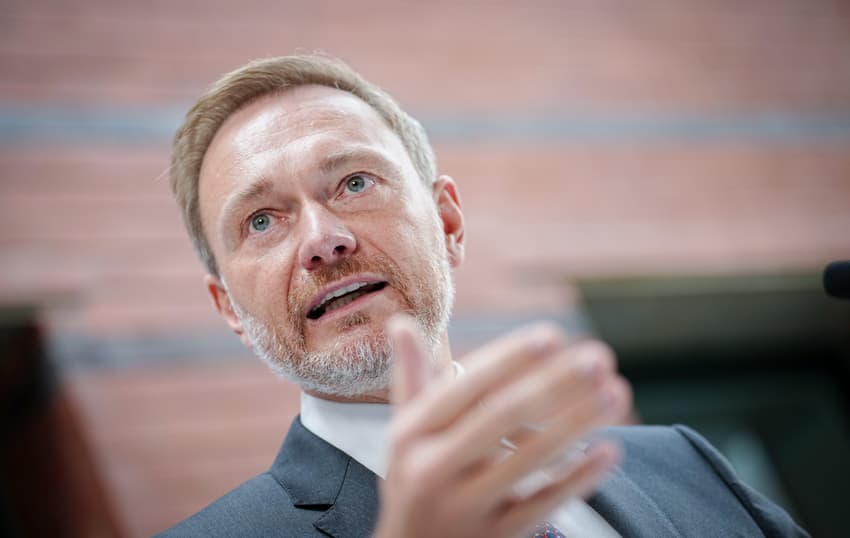German debt rises as energy crisis bites

Germany's public deficit will widen to 3.25 percent in 2023, up from 2.5 percent forecast for this year, as the country spends big to counter a painful energy crisis, the finance ministry said Friday.
"Next year (...) we will see a deficit of 3.25 percent," Finance Minister Christian Lindner said, warning that the figure could even reach 4.5 percent depending on "the scale of spending" to help counter soaring gas and electricity prices.
The previous forecast for 2023 was for a deficit of just two percent of GDP.
A "normalisation of public finances" should be achieved by 2024, according to the finance ministry.
"We have made enormous efforts during the crisis to relieve the burden on people and avoid structural disruptions," Lindner said.
The German economy has been particularly hard hit by the fallout from the war in Ukraine, with spiralling energy costs squeezing the country's flagship industrial sector and dampening consumer purchasing power.
The government has unveiled a €200 billion ($210 billion) support package to mitigate the impact of the energy crisis, including a cap on gas prices for businesses and households.
The economy is nevertheless expected to contract by 0.4 percent in 2023.
READ ALSO: Germany's recession to be 'milder than expected' in 2023
The government also said in November it expects new net borrowing next year to climb to 45.6 billion euros, more than double the 17.2 billion euros initially estimated.
Germany is however planning to return to the constitutionally enshrined "debt brake" in 2023, which limits annual new borrowing to 0.35 percent of gross domestic product.
The government had lifted the debt brake at the start of the coronavirus pandemic in 2020 to cushion the blow from shutdowns.
But reinstating the debt brake has been a priority for Lindner, a fiscal hawk from the pro-business FDP party who came into office last December.
In order to meet this commitment, the government has announced that "special funds," such as the €200 billion energy package will be considered separate from the regular federal budget.
Comments (1)
See Also
"Next year (...) we will see a deficit of 3.25 percent," Finance Minister Christian Lindner said, warning that the figure could even reach 4.5 percent depending on "the scale of spending" to help counter soaring gas and electricity prices.
The previous forecast for 2023 was for a deficit of just two percent of GDP.
A "normalisation of public finances" should be achieved by 2024, according to the finance ministry.
"We have made enormous efforts during the crisis to relieve the burden on people and avoid structural disruptions," Lindner said.
The German economy has been particularly hard hit by the fallout from the war in Ukraine, with spiralling energy costs squeezing the country's flagship industrial sector and dampening consumer purchasing power.
The government has unveiled a €200 billion ($210 billion) support package to mitigate the impact of the energy crisis, including a cap on gas prices for businesses and households.
The economy is nevertheless expected to contract by 0.4 percent in 2023.
READ ALSO: Germany's recession to be 'milder than expected' in 2023
The government also said in November it expects new net borrowing next year to climb to 45.6 billion euros, more than double the 17.2 billion euros initially estimated.
Germany is however planning to return to the constitutionally enshrined "debt brake" in 2023, which limits annual new borrowing to 0.35 percent of gross domestic product.
The government had lifted the debt brake at the start of the coronavirus pandemic in 2020 to cushion the blow from shutdowns.
But reinstating the debt brake has been a priority for Lindner, a fiscal hawk from the pro-business FDP party who came into office last December.
In order to meet this commitment, the government has announced that "special funds," such as the €200 billion energy package will be considered separate from the regular federal budget.
Join the conversation in our comments section below. Share your own views and experience and if you have a question or suggestion for our journalists then email us at [email protected].
Please keep comments civil, constructive and on topic – and make sure to read our terms of use before getting involved.
Please log in here to leave a comment.